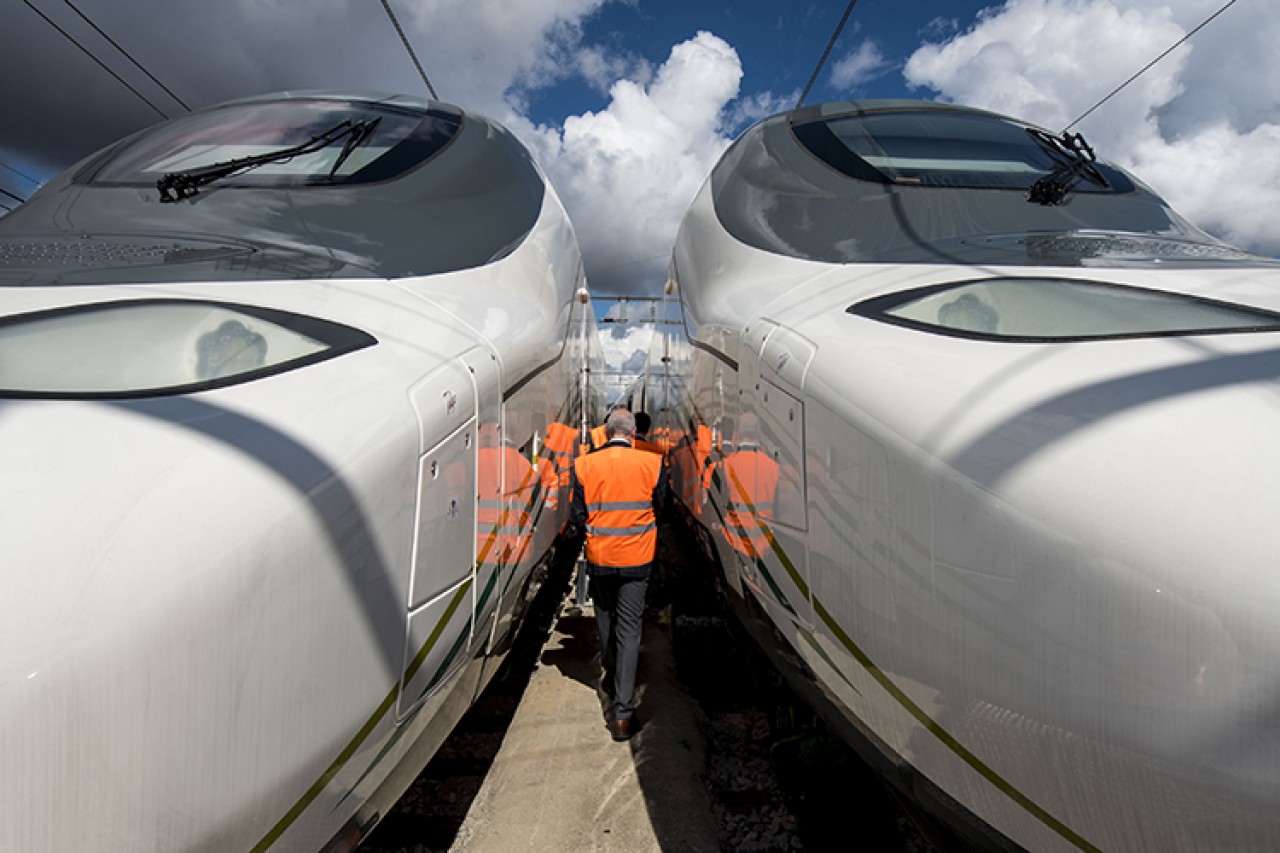- EN
- ES
Specialising in the design, construction and maintenance of high-speed trains, 82% of Talgo’s business comes from the international market

Founded in 1942, Talgo is one of the leading companies in the Spanish railway industry and specialises in the design, construction and maintenance of high-speed trains. Over the past 10 years it has stepped up its international expansion: 82% of its revenue now comes from international markets. Geographical diversification continues to be a priority in Talgo's strategy for the future, and the company sees Australia as a potential market.
At Talgo's headquarters in Madrid, the Leaders met with Guillermo Martínez Acero, Business Manager for Russian-speaking countries and Australia; Salvador Enrique Vidosa, Head of Business Projects in Europe and Asia; Javier Oriol, Head of Investor Relations, and Fernando Puente, Head of Communications.
As Javier Oriol told the Leaders, “the company has been involved in innovation” from its inception, focusing “on clients and countries that need to cut costs and improve speed without investing in new infrastructure”. Talgo's USP lies in the use of two wheel sets instead of four and the distribution of carriage weight in columns over the wheels instead of rigid structures. This allows for a reduction of carriage weight, and in turn, of the impact on the tracks. The result is greater speed, less energy use, cheaper maintenance and outstanding safety.
Among other achievements, Talgo's unique system allowed for a reduction in travel times in Kazakhstan by 38% compared to previous vehicles. Almost all trains in Kazakhstan, the world's 9th largest country, are manufactured by Talgo.
“This is the key advantage we can offer Australia,” Talgo’s representatives explained. “In our simulations, travelling time from Sydney to Canberra is reduced by 40 minutes, and this could be as much as 55 minutes simply by changing the carriages, not even the tracks or the engines,” which would represent massive savings in infrastructure investment.
The Leaders also visited Talgo's factory, where they were able to witness the manufacturing process from beginning to end as well as observing maintenance work, which is one of the company's most important lines of business. The special machinery used to maintain Talgo trains is not only used for its own vehicles, but is also sold to other companies for the maintenance of their own fleets.
Finally, the Leaders got to see the inside of a completed train which was in the final inspection phase before being sent to Saudi Arabia to cover the Medina-Mecca route. This project is one of the most complex, acclaimed works of engineering in the past few years, and a dozen Spanish companies, including Indra, OHL, Adif and Talgo are participating.